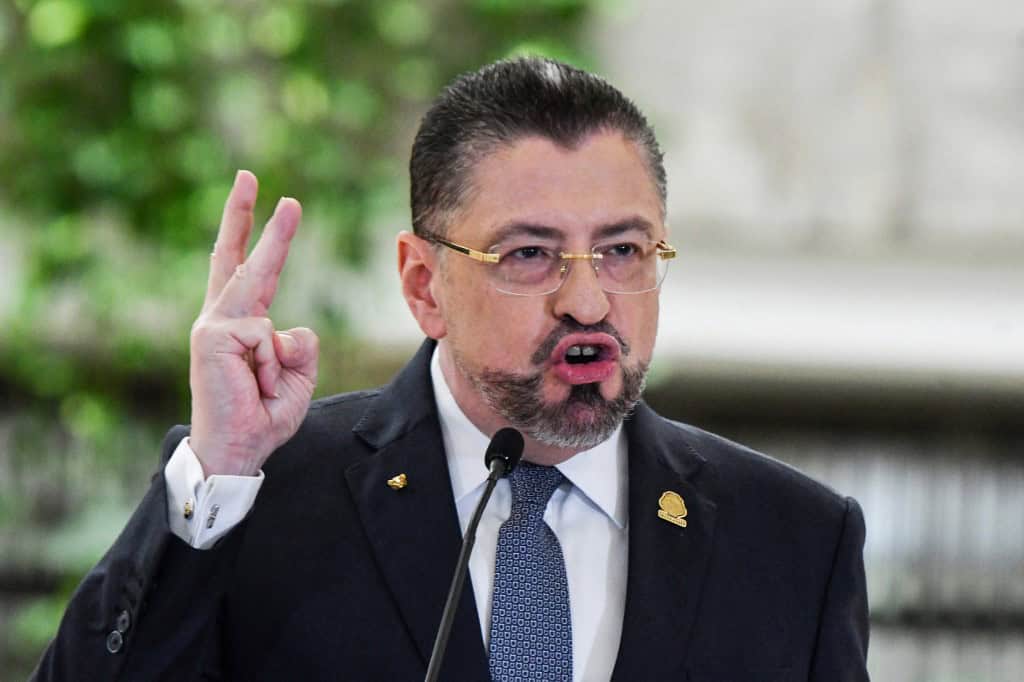On Monday, Costa Rica’s Prosecutor’s Office formally accused President Rodrigo Chaves along with six high-ranking officials and pro-government legislators of allegedly engaging in illicit financing during the 2022 electoral campaign, according to an official statement. The accusation centers on claims that Chaves and his circle used “two parallel structures” to finance the campaign of the Social Democratic Progress Party (PPSD). This development comes amid ongoing tensions between the branches of government.
President Chaves has accused the Prosecutor’s Office, the Supreme Court, and the Legislative Assembly of blocking his reform efforts. Meanwhile, leaders of those institutions accuse Chaves of authoritarian tendencies. The Prosecutor’s Office submitted the charges to the Supreme Court, including a request to lift the constitutional immunity (fuero) of the seven officials and initiate a criminal trial for their alleged involvement in illegal political financing.
Among those named in the indictment are First Vice President Stephan Brunner and Foreign Minister Arnoldo André. The list also includes four PPSD legislators: Pilar Cisneros, Luz Mary Alpízar, Paola Nájera, and Waldo Agüero.
According to the prosecution, the PPSD illegally financed its 2022 general election campaign through a private trust fund and personal bank accounts belonging to a woman with the last name Agüero. This individual is facing separate criminal proceedings because she is not protected by immunity. “Both funding channels operated outside the oversight of the Supreme Electoral Tribunal and the party’s official Treasury,” a violation of Costa Rica’s Electoral Code, the Prosecutor’s Office said.
It’s now up to the Supreme Court to review the case and decide whether to request that the Legislative Assembly lift the constitutional immunity of the accused officials. If found guilty, they face prison terms ranging from two to four years, according to the code. Back in April, the Prosecutor’s Office also accused Chaves of alleged abuse of power for favoring a former aide using funds from an internationally financed contract. The Supreme Court has yet to issue a ruling on that matter.
Chaves, a 64-year-old conservative economist and former World Bank official, is not eligible for reelection. However, political allies suggest he may pursue a legislative seat. Known for his tough, populist leadership style, Chaves continues to perform strongly in opinion polls. He has said he hopes his party wins a qualified majority in the February 2026 elections to implement a series of reforms.






